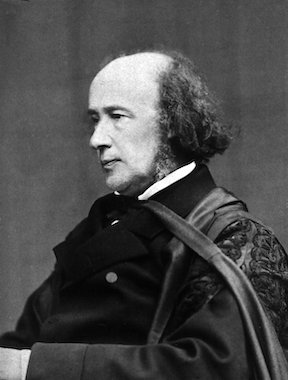Hide
hide
Hide
Transcript
of
Sir Henry Wentworth Dyke Acland, Bt, K.C.B, M.D, D.C.L, LL.D, F.R.S. [Obituary]
Trans. Devon. Assoc. vol. XXXIII, (1901), p. 33.
by
J. Brooking-Rowe (Ed.)
Prepared by Michael Steer

The obituary was read at the Association’s July 1901 Exeter meeting. Sir Henry Wentworth Dyke Acland, 1st Baronet, KCB (1815-1900) was a physician and educator. Born at Killerton, Exeter, the fourth son of Sir Thomas Acland and Lydia Elizabeth Hoare, educated at Harrow and Christ Church, Oxford. He was elected fellow in 1840, then studied medicine in London and Edinburgh. Acland took a leading part in the revival of the Oxford medical school and in introducing the study of natural science into the university. He was also interested in questions of public health, serving on the royal commission on sanitary laws in England and Wales in 1869. He published a study of the outbreak of cholera at Oxford in 1854. A fulsome obituary for the Baronet is available from the Dictionary of National Biography (1901 Supplement) website. The obituary, from a copy of a rare and much sought-after journal can be downloaded from the Internet Archive. Google has sponsored the digitisation of books from several libraries. These books, on which copyright has expired, are available for free educational and research use, both as individual books and as full collections to aid researchers.
Sir Henry Wentworth Dyke Acland, Bart., K.C.B., M.D., D.C.L., LL.D., F.R.S., Regius Professor of Medicine in the University of Oxford 1857-94, Radcliffe Librarian, Honorary Student of Christ Church, was born 29th August, 1823, and died October, 1900. Of a Devonian so distinguished and eminent many memoirs were written, and there is no necessity for giving in our pages an account of his life and work; a very good one, by Mr. D'Arcy Power, will be found in the first volume of the Supplement to the Dictionary of National Biography. He was a life member of our Association, and always took an interest in its work. He was President at the Meeting at Totnes in 1880, and his address was a valuable and suggestive one.
